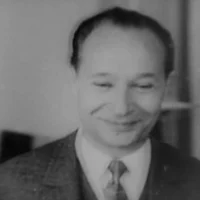On September 1st, 1969 Muammar Qaddafi along with a group of officers part of the Free Officers Movement staged a bloodless coup d’état against King Idris I of Libya who at that time was in Greece undergoing medical treatment. The coup was staged in the city of Benghazi and was over within two hours. Qaddafi… Read More "Qaddafi – The Man and His Rise to Power"
The Assassination of Ambassador John Gordon Mein, Guatemala, 1968
Eight U.S. Ambassadors have died while on duty, six of whom were killed in armed attacks. The most recent was Chris Stevens, who died during the September 11, 2012 attack on Benghazi. (The other two ambassadors died in airplane crashes.) On August 28, 1968, Ambassador John Gordon Mein became the first U.S. ambassador to be… Read More "The Assassination of Ambassador John Gordon Mein, Guatemala, 1968"
In 1968, growing opposition to the failing sociopolitical and economic policies of hard-line Communist regime in Czechoslovakia, led by Antonín Novotný, finally came to a breaking point. Reformist politician Alexander Dubček replaced Novotný as First Secretary of the Communist Party of Slovakia. The period that followed, known as the Prague Spring, saw an expansion in… Read More "A Cold End to the Prague Spring"
Prague Spring as Seen from the Outside – The Utter Impotence of U.S. Policy
Newspapers that had long been the Party mouthpiece were allowed to criticism the government, labor unions were given more rights to speak for their members, people were allowed to speak more freely. The shackles of Soviet totalitarianism were loosened. But only briefly. The Prague Spring, that period of political liberalization in Czechoslovakia beginning in January… Read More "Prague Spring as Seen from the Outside – The Utter Impotence of U.S. Policy"
Stalin’s Legacy: The Nagorno-Karabakh Conflict
Nagorno-Karabakh is a highly contested, landlocked region in the South Caucasus of the former Soviet Union. The present-day conflict has its roots in the decisions made by Joseph Stalin when he was the acting Commissar of Nationalities for the Soviet Union during the early 1920s. In April 1920, Azerbaijan was taken over by the Bolsheviks; Armenia and Georgia were… Read More "Stalin’s Legacy: The Nagorno-Karabakh Conflict"
Princess of Monaco, Full of Grace
Grace Kelly was known for her beauty, success and passion even before becoming Princess of Monaco. Before her untimely death in 1982, Princess Grace had become involved in, and even founded, various charity organizations to help people through the world. During an oral history interview conducted in 1994 by William D. Morgan, Peter Murphy describes… Read More "Princess of Monaco, Full of Grace"
Cyprus — August 1974: “It was a blind shot that got the Ambassador”
On August 19th, 1974, recently appointed Ambassador to Cyprus, Rodger Davies, was shot dead during a Greek Cypriot protest outside the U.S. Embassy. The demonstration brought out over 300 people who were protesting against the U.S.’s failure to prevent the Turkish invasion of the northern part of the island the week before. Davies was seeking… Read More "Cyprus — August 1974: “It was a blind shot that got the Ambassador”"
Cain and Abel: Splitting Up North and South Korea
With the end of World War II in August 1945, there was still no consensus on Korea’s fate among Allied leaders. Many Koreans on the peninsula wanted independence and rejected re-occupation by foreign forces. Per the agreement at Yalta, the USSR entered the fight against Japan and invaded Manchuria and northern Korea. On August 10,… Read More "Cain and Abel: Splitting Up North and South Korea"
The KKK’s “Coup Attempt” in Kenya
Kenya of the late 80’s was essentially a single-party state, with the president holding almost complete control. President Moi ruled from 1978 through 2002 and worked to crush movements among academics to initiate democratic reforms. Two failed coups d’état were attempted almost simultaneously in 1982, and then just a few years later the Kenyan government… Read More "The KKK’s “Coup Attempt” in Kenya"
Terror on the 9th Floor — The Kuala Lumpur Hostage Crisis
On August 4th, 1975, five members of the Japanese Red Army or JRA – a militant organization intent on overthrowing the Japanese government and starting a worldwide revolution – stormed the United States embassy on the 9th floor the AIA Insurance building in Kuala Lumpur, Malaysia. The tallest building in Malaysia at the time, it… Read More "Terror on the 9th Floor — The Kuala Lumpur Hostage Crisis"

